In the dynamic world of contact centers, where efficiency, customer satisfaction, and technological advancements play pivotal roles, a unique breed of contact centers stands out—family-owned contact centers. These centers, rooted in familial ties and shared values, bring a distinct flavor to the industry.In this blog, we explore the strengths and advantages of being a family-owned contact center by talking with a few family-owned contact centers in the hopes of better understanding how they continue to thrive in a competitive landscape
1. Legacy and Long-term Vision
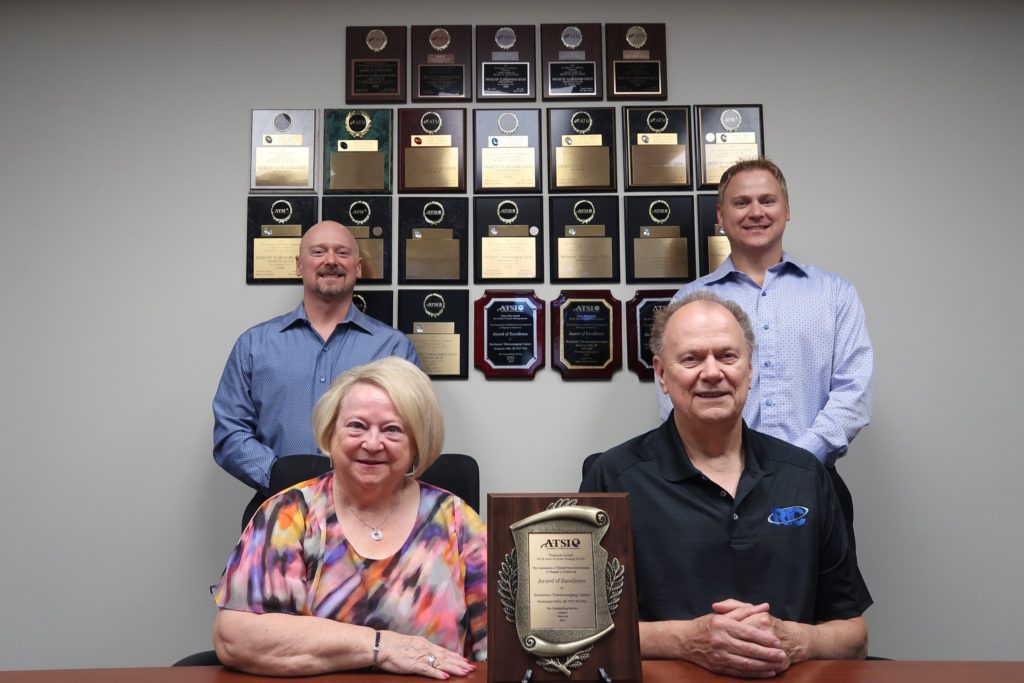
Ryan Chinoski of Rochester Telemessaging (back left) with parents, Jan (front left) & Herb (front right) & brother Keith (back right)
Family-owned contact centers often have the advantage of a long-term vision driven by a sense of legacy. With a focus on building a lasting business, these centers prioritize sustainable growth strategies over short-term gains. Family values and a deep-rooted commitment to providing exceptional service creates a foundation for enduring success.
One family-owned contact center that enjoys continued industry accolades and awards is Rochester Telemessaging in Michigan. The current president, Ryan Chinoski, is the company’s 2nd generation of leadership and is building on a path set forth by his parents.
“My parents (Herb & Jan) set ideals in motion, early on, to always “exceed expectations”, “treat people how you want to be treated” & “work with integrity.” Chinoski explains further, “Our culture is the other major part of the equation. Our team focuses on being positive and professional. Winning awards is a great byproduct of these principles.”
The intergenerational perspective fosters a culture of stability, continuity, and meticulous planning which leads to the establishment of robust processes and client relationships.
For many family-owned contact centers the biggest problem to solve is whether or not the next generation wants the business.
“I grew up around the family business,” Chinoski explained “so I knew the industry and what was involved. However, my parents weren’t going to let me jump right in and start running their company. They were very wise and methodical about this decision. They offered me an opportunity and a path to succeed. If I wanted to take over the family business someday, I first had to go to college and graduate with a business degree.“
But even a degree with the right credentials didn’t make inheriting the family business a done deal for Ryan who says,
“Next, I needed to go out and work in the “real world” for a few years.
This was in hopes that I would learn things outside of our industry that I could bring to the company. It would also give me an opportunity to start from the bottom and learn what it’s like to be an employee before being a boss. After all of that, when I was still interested, I was invited back and offered a position at Rochester Telemessaging Center.”
2. Trust and Reliability
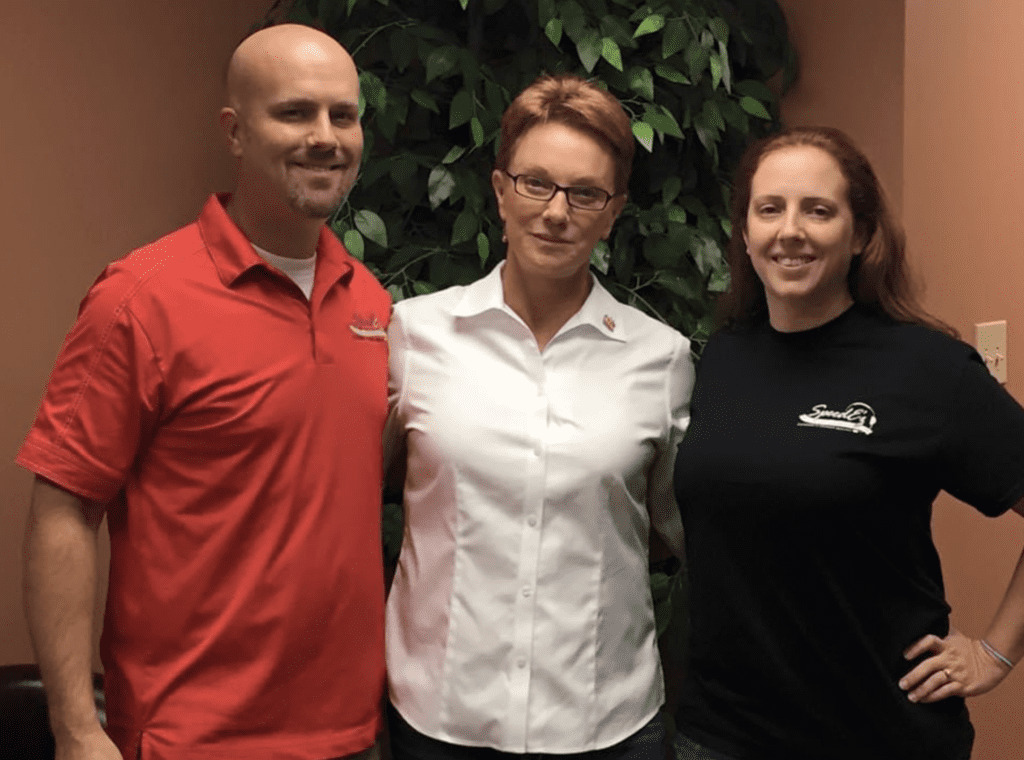
Lauren Garza of SpeedEZ Exchange (right) with mother, Jo Anne Brown (center) & brother, Nathan Fowler
Family-owned businesses have a distinct advantage when it comes to building trust with clients. The family name and reputation become intertwined with the success of the contact center, motivating owners to maintain high standards of quality and integrity.
With a sense of pride and personal accountability, family members often go the extra mile to ensure client satisfaction and deliver on their promises. These long-standing relationships, built on trust, often result in a loyal and satisfied customer base as well as employees.
Lauren Garza, the current Vice President at Speed-E’z Exchange, has spent many years under the tutelage of her mother Jo Anne Browne. She says that watching a family member start something and grow it into a respected business inspires her.
“The respect and love I have for my mom is endless.” Garza exclaimed, “She had an idea and developed that into a dream, and then a goal, and then molded that dream into reality with all her hard days and long nights – with me sleeping on the floor of the office watching her answer phones. That hard work and love for her business is what shaped my love for her business and made me want to continue in her footsteps, determined to make her just as proud of me as I am of her.”
Garza also pointed out an advantage family-owned contact centers have over the corporate world when it comes to engagement.
“While corporate centers might try to make their agents feel like they have a personal connection with their management or site ownership,” says Garza, “I think that family-owned centers excel here as they often work hand in hand with the agents who often become “part of the family.”
3. Cohesion and Collaboration
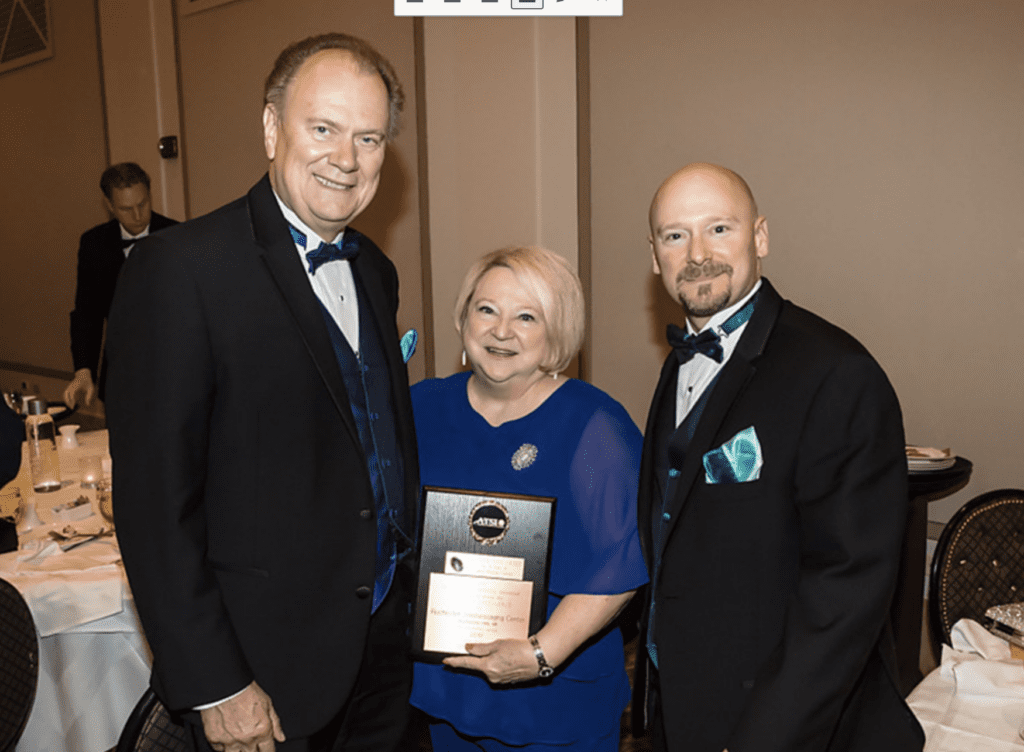
Ryan Chinoski of Rochester Telemessaging Inc. (right) with parents, Herb (left) & Jan (center)
The familial bond found in family-owned contact centers contributes to a strong sense of cohesion and collaboration among team members. The owners and employees share a common purpose and a sense of belonging, leading to enhanced communication, unity, and teamwork. But according to Ryan Chinoski this can all be easily spoiled when family matters come before business.
“Family businesses are tricky! It takes a special kind of family to be able to work together. There’s no one you’d rather celebrate the victories with and no one you’d rather lean on during the defeats. However, family members need to be able to separate work from personal life,” Chinoski reminds us, “They need to be able to “shut it off” when you’re not in the office. The biggest problem I’ve seen with family businesses are when the family members disagree at work and carry those hard feelings home to holidays and gatherings.”
A cohesive environment fosters an open and supportive culture, empowering employees to excel and contribute their best to the contact center’s success. The family dynamic often extends beyond blood relations, creating a sense of extended family among employees. Rob Ward, President of Anserve Inc., adds that in the specific case of the Startel National Users Group extended family even branches out to competitors.
“I think one of the biggest legacies that has been left behind by those that came before is the willingness to share ideas/business practices between call centers (who could be considered competitors) and also among vendors (to a lesser degree),” said Ward, “I have never been part of an industry that is so open and willing to help each other out, which is really a unique thing that I have not seen in other places I have worked.
4. Flexibility and Adaptability
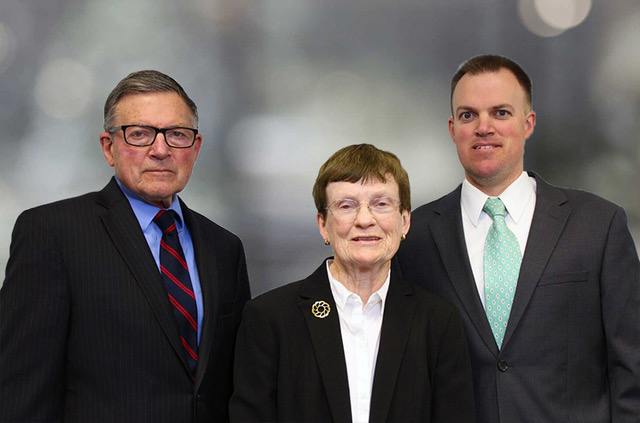
Rob Ward of Anserve (far left) with parents Bob (far right) & Nancy (center)
Family-owned contact centers can often demonstrate agility and adaptability when it comes to meeting client needs.
But according to Rob Ward there are circumstances that can cause some challenges.
“Bringing about change in a family-owned contact center can be more of a challenge,“ cautions Ward, “Especially when long-time owners and employees only have experience in the family business with no exposure to corporate or large entities.”
According to Ward, it is your job as an owner to provide continuing education opportunities and expose them to other business practices within the industry.
With a streamlined decision-making process, family-owned contact centers can respond quickly to changes in the industry and market demands.
Of course, you must be mindful of the things you do and not do them just because mom and dad always did the same thing years ago. Ward says the best family-owned contact centers are always looking to improve their processes.
“Avoid the we have always done it this way mentality,“ Ward said confidently. “Always look for ways to keep up with technology and keep an eye on market forces. Reject complacency, attend conferences (ATSI, User Group, Regionals, CAMX) and explore other contact center conferences as well. Get involved in regional/state chambers of commerce.”
The absence of complex hierarchical structures allows for greater flexibility in implementing new technologies, adopting innovative practices, and customizing services to suit client requirements. This adaptability enables family-owned contact centers to stay ahead of the curve and embrace emerging trends.
5. Employee Development and Growth
Family-owned contact centers tend to invest in the development and growth of their employees. With a long-term perspective, family-owned contact centers understand the value of nurturing talent and providing opportunities for advancement.
Rob Ward, with Anserve, says employees are often seen as extended family members, and owners take a genuine interest in their well-being, career progression, and professional development. He believes this commitment to employee growth leads to a dedicated and motivated workforce, fostering employee loyalty and reducing turnover.
“I think family-owned call centers are much more tied to their employees than a non-family-owned call center. There are many family-owned call centers that have employees that have worked for them for multiple decades, sometimes 50+ years,“ said Ward, “I know this can happen in other call centers as well, but it seems to be more of a common thread throughout family-owned call centers.”
Conclusion
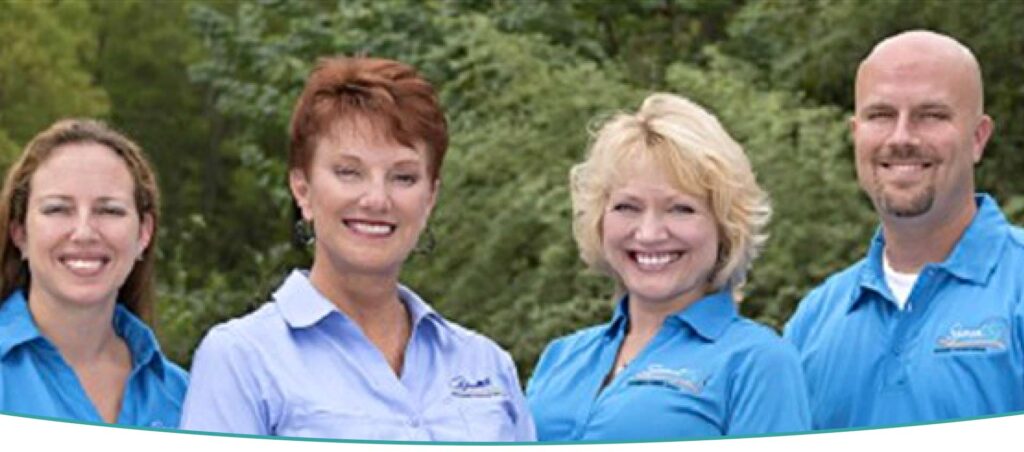
Lauren Garza of SpeedEz Exchange (left) with her mother Jo Anne Brown (left center), her cousin Tammy Padalecki (right center) & her brother Nathan Fowler (far right)
Family-owned contact centers bring a unique set of strengths to the industry, driven by legacy, shared values, trust, and collaboration. Their focus on long-term success, customer satisfaction, and employee development sets them apart in an increasingly competitive landscape.
With the ability to adapt quickly, deliver personalized service, and build enduring relationships, family-owned contact centers continue to thrive and leave a lasting impact on both clients, employees, and the next generation of owners to come.
In an era where impersonal interactions can prevail, family-owned contact centers remind us of the power of human connection, where values and relationships play an integral role in building successful businesses.
About Startel
Since its founding in 1980, Startel has established a loyal customer base from a variety of industries, including contact centers, education, government, healthcare, insurance, telephone answering service, and utilities. Today, Startel has customers in 43 states across the United States as well as Canada, Central America, New Zealand, and Switzerland. Our customers depend on Startel’s solutions and services to increase business efficiencies, identify performance opportunities, and deliver quick, secure, and accurate communication 24/7 x 365.
“Discover for yourself why so many contact center owners and managers say success starts with Startel,” visit www.startel.com or call 800-782-7835.
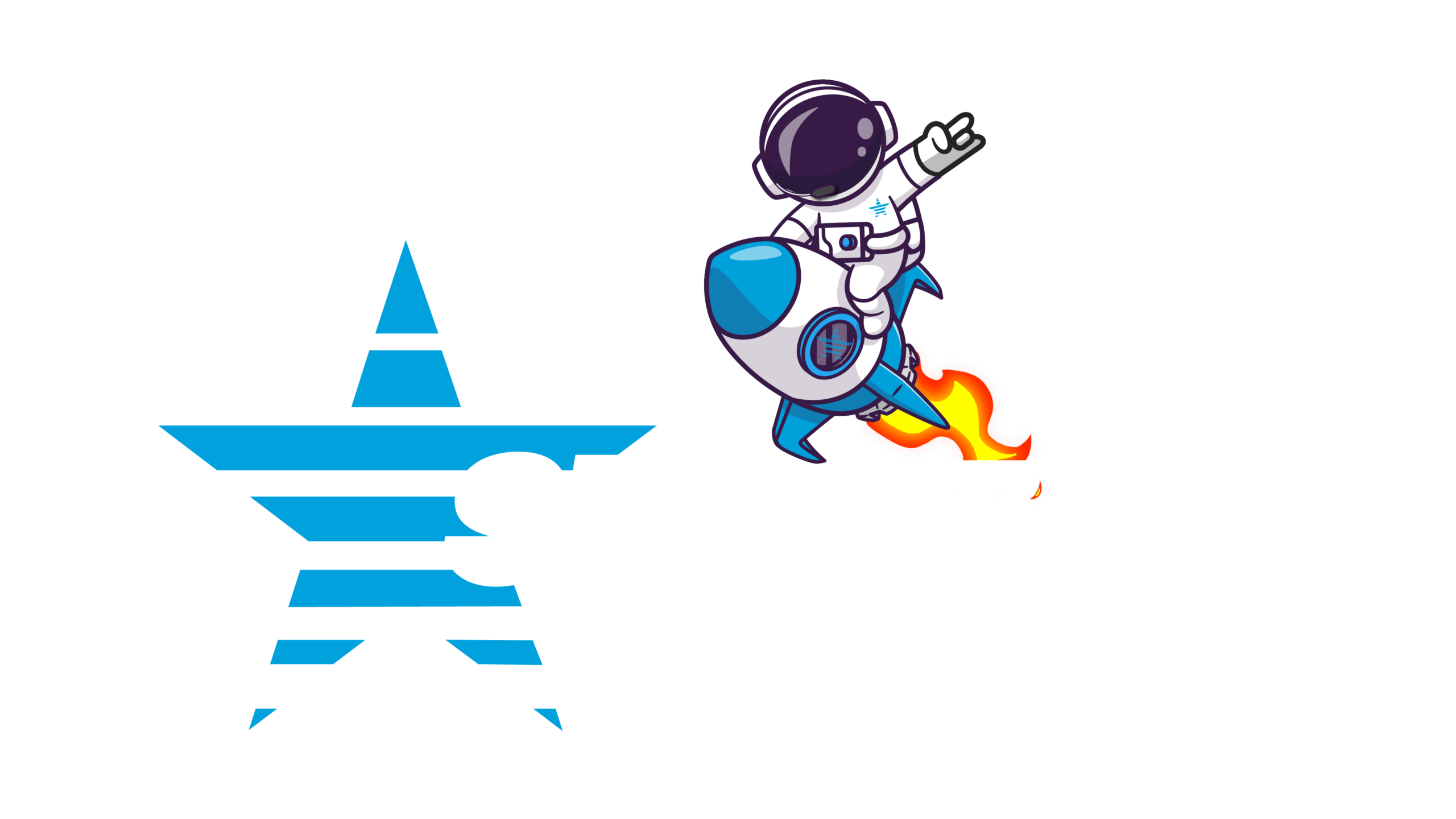
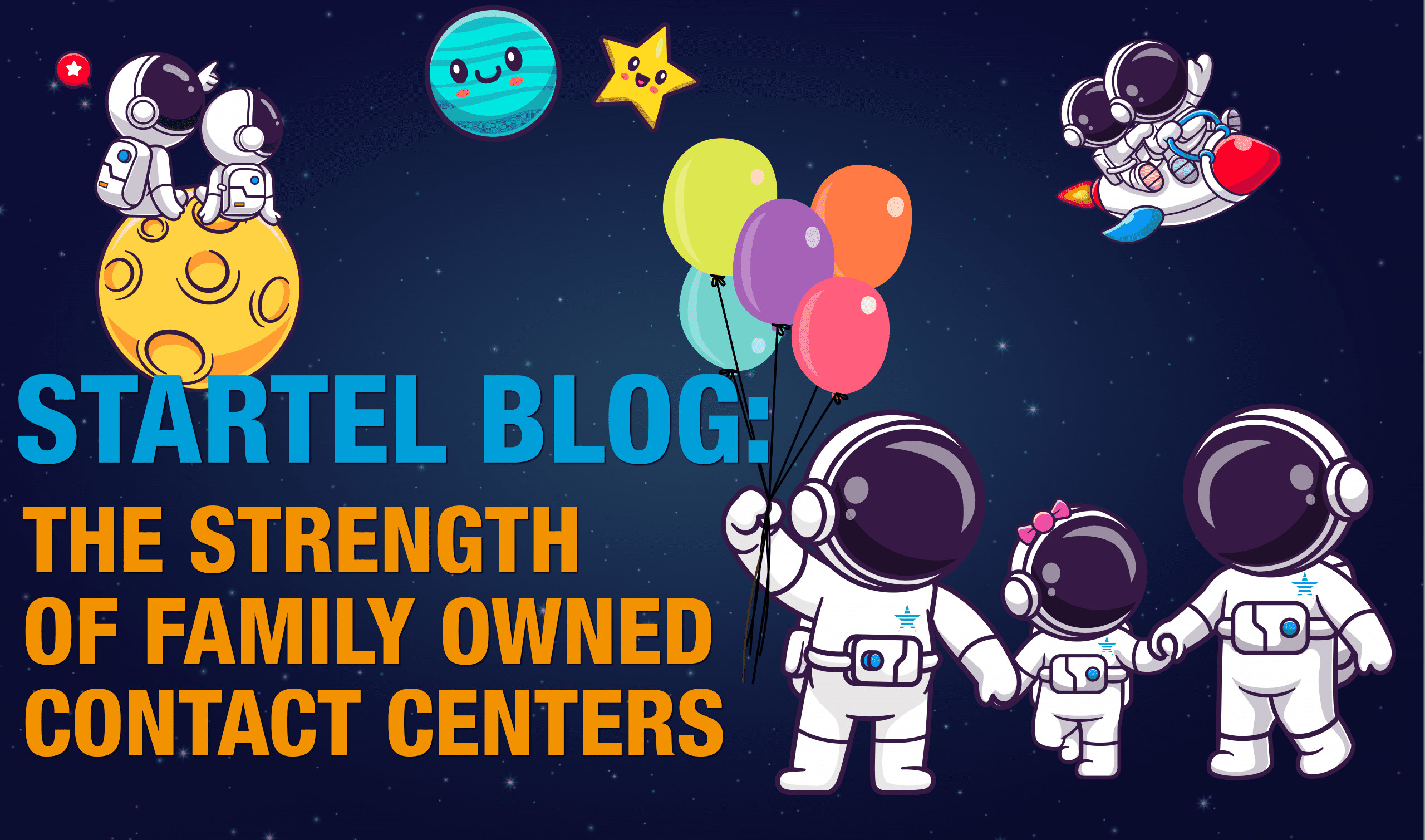
Recent Comments